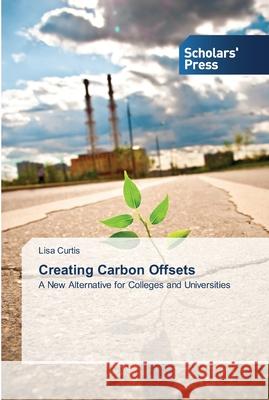Creating Carbon Offsets » książka
Creating Carbon Offsets
ISBN-13: 9783639714708 / Angielski / Miękka / 2014 / 64 str.
Recent research has shown that a significant number of carbon offsets do not reduce additional greenhouses gases or provide co-benefits, sparking widespread criticism. Even as the controversy over carbon offsets has increased, purchases have grown exponentially, with scholars and policy-makers alike promoting offsets as an economically efficient solution to the climate crisis. In the shadow of this debate are 680 colleges and universities that have pledged to become carbon neutral through the American College and University Presidents Climate Commitment (ACUPCC). Unfortunately, signatories of ACUPCC are finding themselves in a predicament. In order to reach carbon neutrality within their self-determined timeline, the majority will have to utilize carbon offsets. However, a recent report showed that given the current level of controversy, many presidents and chancellors are hesitant to invest in the carbon offset market. As a potential solution, a few colleges and universities have begun experimenting with a new kind of offset: instead of purchasing offsets from unknown companies and places, they are sponsoring carbon reduction projects in their local communities.











